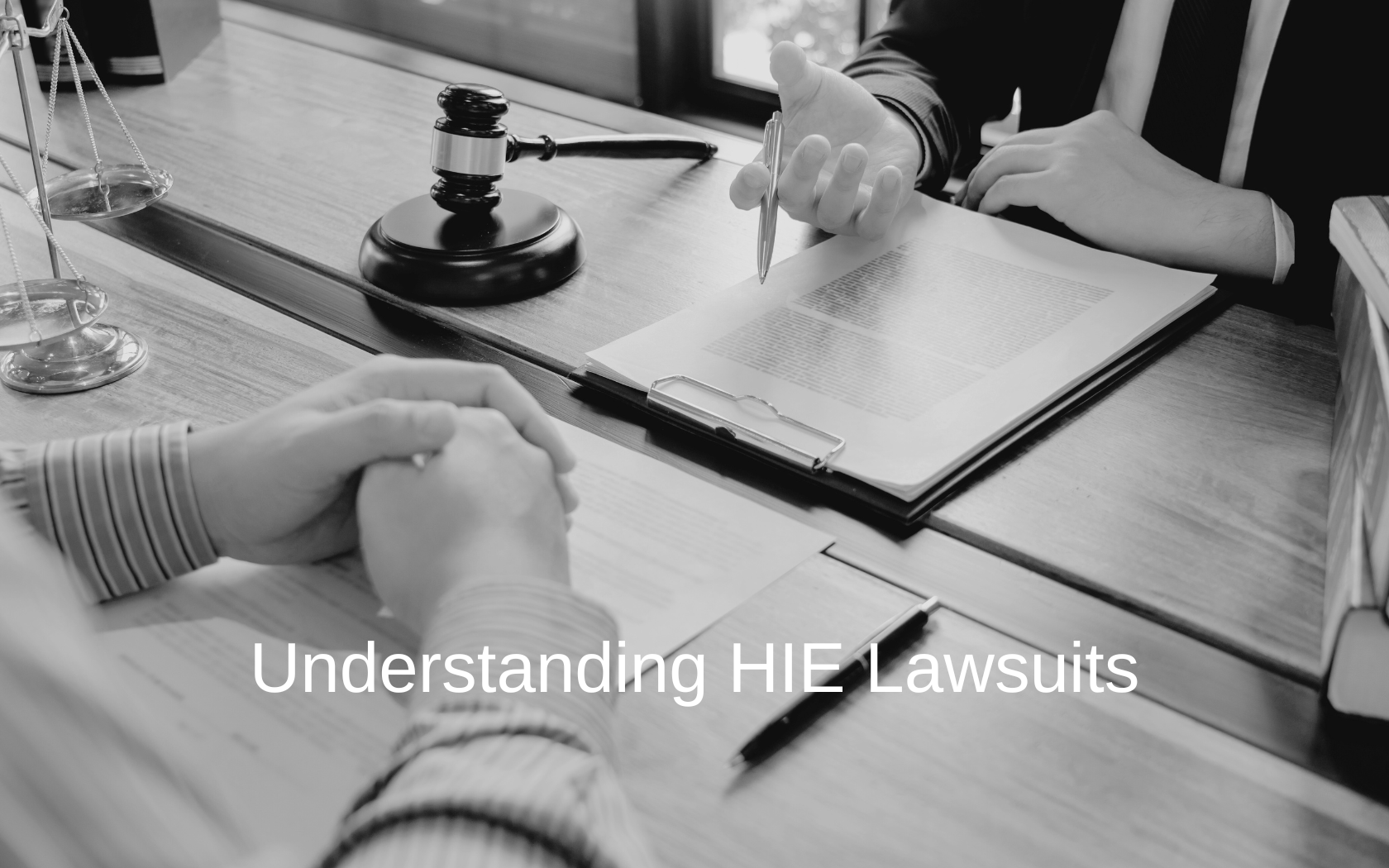When life hands you lemons, you’re told to make lemonade. It’s a classic saying about turning tough times into something positive. But what if the “lemons” are a diagnosis of HIE due to medical negligence? In such cases, the best way to support your child might be through an HIE lawsuit.
In this article, we’ll explore how an HIE lawsuit may benefit your family. If you’re eligible, an expert HIE lawyer can guide you through the process.

What is HIE?
HIE (Hypoxic-ischemic encephalopathy) is a serious complication that can occur when a baby doesn’t get enough oxygen during birth.
This lack of oxygen can damage the baby’s brain. Without oxygen, brain cells can start to die. This damage can lead to long-term problems.
HIE can cause babies to have movement, learning, or development issues. In severe cases, HIE can cause death.
What Causes HIE?
Some of the most common causes of HIE are related to problems during labor and delivery. For example:
- The umbilical cord wrapping around the baby’s neck.
- Long or difficult labor, where the baby is stuck in the birth canal.
- The placenta separates from the uterus too early (placenta abruption).
- Untreated infections in the mother.
- Congenital problems in the baby, such as a heart defect.
If doctors see signs of trouble, they should act quickly to try to prevent oxygen deprivation and HIE.

What is an HIE Lawsuit, and How Do They Work?
Sometimes, a baby gets HIE due to medical mistakes. HIE lawsuits are legal cases that families can pursue to seek compensation from the doctors or hospitals who made the mistakes.
Of course, compensation can’t “undo” a doctor’s devastating error. But it can give a family the resources needed to provide the best medical care possible for a child with HIE. Children with HIE often need ongoing treatment and therapy that can total hundreds of thousands, or even millions of dollars over their lifetime.
Here’s how an HIE lawsuit usually works:
- Filing a Complaint: The family files a complaint in court. This document explains what happened and why they believe the doctors or hospital are at fault.
- Gathering Evidence: The family collects evidence. This includes medical records, expert opinions, and witness statements.
- Negotiation: The lawyers from both sides try to reach a settlement. This means the family might receive money without going to trial.
- Trial: If the case doesn’t settle, it goes to trial. A judge or jury listens to the evidence and decides who’s at fault.
- Verdict: The court gives a verdict. If they find the doctors or hospital responsible, they may have to pay damages to the family.
- Appeal: The losing side might appeal the decision. This means they ask a higher court to review the case.
Though we’ve summed the process up in six succinct points, there’s a lot more to it than that. The HIE lawsuit process can be long and complex. But it’s worth the trouble when it provides funds to better care for your child.
Should You File an HIE Lawsuit?
How will you know you’re eligible to file an HIE lawsuit? That’s where an HIE lawyer comes in. They are experts in HIE medical malpractice cases.
Here’s an example of what could make a strong case for HIE malpractice:
- Proof of Negligence. There’s proof that somewhere down the line, the medical team failed to follow standard procedures. For example, they didn’t monitor the baby’s oxygen levels.
- A clear link between the negligent act and HIE. For example, the medical records might show the baby’s oxygen was compromised from being stuck too long in the birth canal, and doctors didn’t order a C-section.
- Expert Testimony. Medical experts agree that the care provided was substandard and led to the baby’s condition.
- Evidence of harm caused from HIE. For example, the baby has long-term health issues. Or the parents had to pay extra medical costs.
Each case is different. The only way to know if you can and should file an HIE lawsuit is to speak with an HIE lawyer.

What Can an HIE Lawyer Do For You?
Should you be eligible, your lawyer will help you through the entire HIE lawsuit process from start to finish. An attorney’s main duties are to:
- Review your medical records.
- Get medical experts to “weigh in” on your records
- Gather testimony and execute depositions
- Negotiate with your medical provider (or their insurers) for a settlement
- Represent you at trial (if needed).
It’s important to know that there’s a time limit for filing HIE lawsuits (and any other type of medical malpractice lawsuit). In most states, it’s 2-3 years. So don’t wait to get started if you think negligence caused your child’s condition.
If you think you may have a case, talking to an HIE lawyer is a good first step. They can help you understand if you’re eligible to file an HIE lawsuit.




